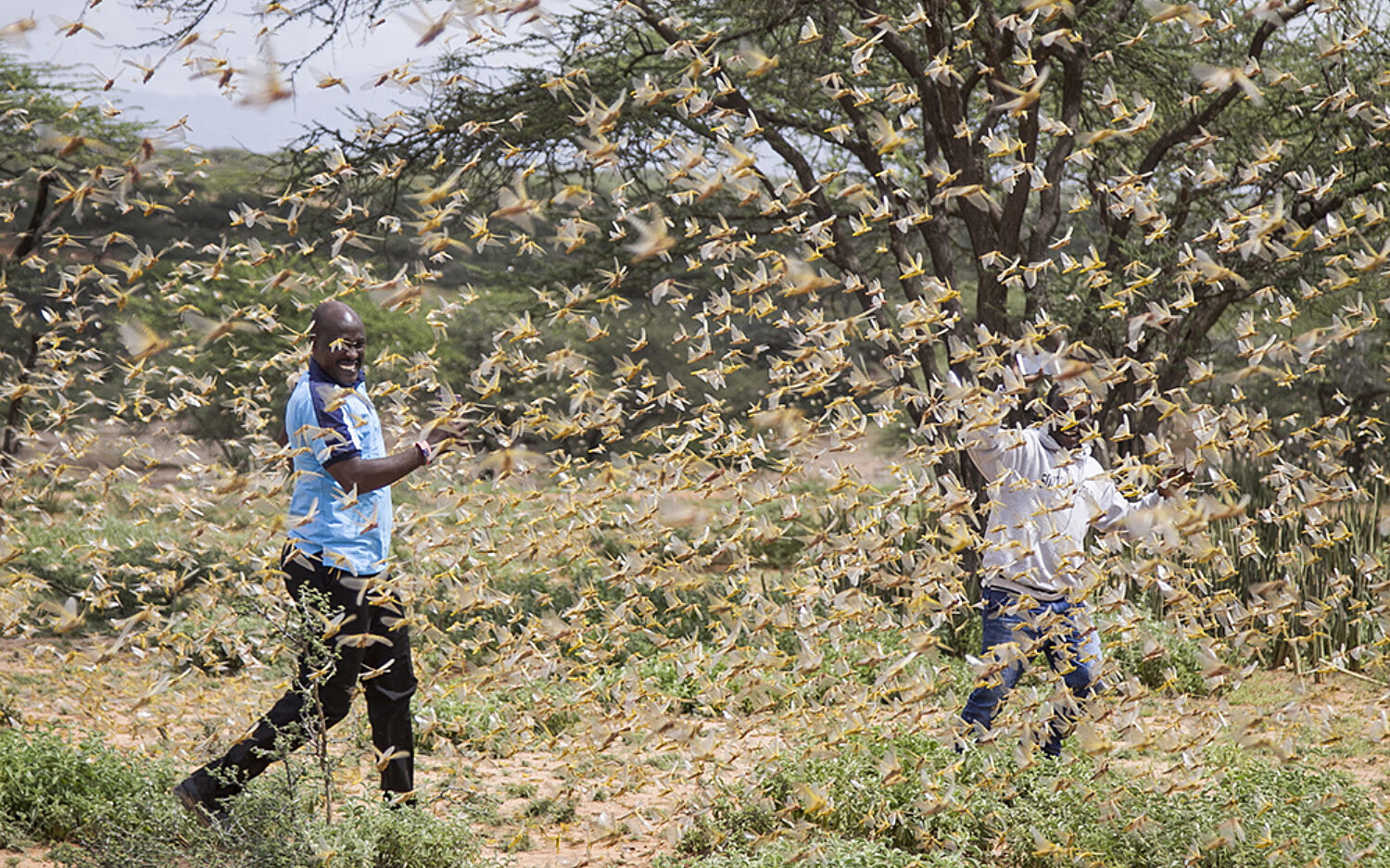Shimmering dark clouds hang on the horizon in Kenya. But these clouds don’t bring needed rainfall. They’re clouds of locusts.
Locusts are short-horned grasshoppers. The ones swarming over Kenya measure about the length of a finger. They fly together by the millions and devour crops as they go. In some spots, the locust clouds are so thick people have to wade through them! A camel herder near the town of Isiolo, Kenya, swings a stick at them. Others try to shout them away. Nothing seems to help.
This is the most serious outbreak of locusts in 25 years. The insects spread across East Africa. One swarm measured 37 miles long and 25 miles wide! Locust swarms migrate with the wind. They can move more than 90 miles in one day. And as they move, they’re eating. Their feasting can mean the people’s famine. In one day, they can destroy food crops that would feed 2,500 people.
The locust outbreak has affected parts of Somalia, Ethiopia, Sudan, Djibouti, and Eritrea. Parts of South Sudan and Uganda could be next. People in those countries were already in danger of not having enough food. Now hundreds of thousands of acres of crops have been destroyed. Authorities study satellite images of the invaders. They stockpile pesticides. Workers spray the locust-killing chemicals from the air.
Locust swarms have grown so huge because of unusual floods in Africa. The extra wetness creates good breeding conditions for locusts. How long will these winged troublemakers be hanging around? The huge locust swarms could last until June.
Do you remember reading about locusts in Exodus 10? God sent the bothersome bugs to Egypt to show His great power. A large group of locusts is actually called a “plague.” Another meaning for “plague” is “disastrous affliction.” People in Kenya today will tell you that’s exactly what it feels like to live with locusts!



















